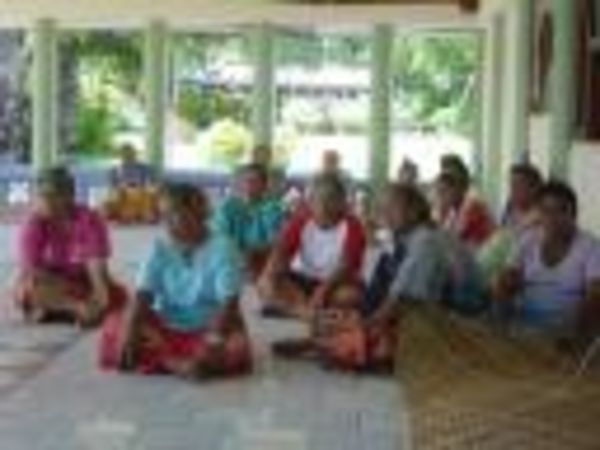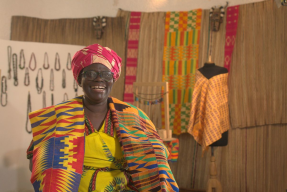How a Skill Becomes a Loan Becomes a Business
March 27, 2008
I’ve decided to provide a pictorial representation of the loan steps for SPBD. I’ll use thumbnails because I’d like to avoid crashing the Ugandan or Mozambican or any other countries’ internet cafes. This will alow you to see some of the guys (and gals) behind the guys (and gals). I’m confident that other MFIs have similar processes. It was incredible to witness it first-hand. Hopefully this will provide a glimpse.
After a village expresses interest in starting a center (microfinance group), a representative of SPBD travels to the villages and provides them with a couple finely crafted program videos and a PowerPoint presentation to a very captive audience. Many of the villagers discover SPBD through local TV advertisements.

A Centre Manager (CM – loan officer) returns for four consecutive weeks to provide training on SPBD’s core concepts: business, weekly meetings, payments, savings and group guarantee. Group guarantee being the bedrock of this MFI. Each woman is dependent on the others to faithfully follow the terms of their agreement and must shoulder the burden if others are unable. This is where the Samoan culture of community and pride are especially indispensable.

On disbursement day, the women (as many as 100) begin to arrive at 8:00am at the SPBD office in Savaii. Some stay as long as 8 hours to receive their first loan. I’d like to say the atmosphere is teeming with excitement. I think, really, after 4 weeks of training, they just want their money. Many have had their skill (growing taro, fishing, making dresses, mats, etc) for many years. Time spent previously lounging in the fales (open air houses) is now spent more productively.

Each woman undergoes a final interview to guarantee her fitness in repaying the loan, understanding of the agreement and knowledge of her business. A wide grin and “fa’fetai” (thank you) are all that is needed to show their appreciation.

Now begins the standard 52-week loan term. Each week, a CM travels to each center to receive payments. Group guarantee is effectively enforced and followed.
Visits to the actual businesses is not often an option for a CM considering their very busy days. (But they are able to patronize them as customers during the nights and weekends.) During these center meetings while the detailed records are taken, I’ve had the opportunity to leave and visit the local food stalls, plantations and others. A retail location for many of the women is the Salelologa market where surprisingly no heckling and bargaining rarely takes place.

So the business and loan cycle continue for the next 51 weeks. Profits used to pay back the loan, educate their children, improve their houses, expand their businesses and save for the future. Prior to microfinance, opportunities never before realized.














